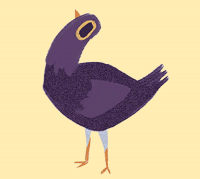In “What Is the ‘Alt-Right’?” Cory Collins explores the history of this loosely affiliated group and how its leaders are seeking to become more influential by recruiting young people. This toolkit offers a quiz and a list of key terms and phrases to help educators become familiar with the names, images and tactics associated with the so-called movement and to better equip educators to recognize hate in the classroom.
Essential Questions
- What does the “alt-right” believe?
- How does the “alt-right” seek to influence and recruit young people?
- Who is most likely to be attracted to the messages of the “alt-right” and why?
Part I: Quiz
How much do you know about the alt-right? Take this true/false quiz yourself or share it with colleagues.
The alt-right is a clearly defined group of people with a shared set of beliefs and goals.
False. The term “alt-right” encompasses diverse groups of people, some of whom engage in online trolling as a way to spread inside jokes, hate speech and inspire anger. Some are media personalities and influencers who espouse racist, misogynistic and/or anti-multicultural views. The desire to return to a past when diversity wasn’t embraced and white culture and power was the unquestioned norm is the one belief that unites the alt-right.
Pepe the Frog is a benign cartoon meme.
False. While Pepe was created as a simple cartoon, the alt-right has coopted this image as its mascot. See below for more key images of this movement.
You can easily identify a member of the alt-right by the way they look.
False. When members of the white supremacist movement renamed themselves the alt-right, they also realized that more rebranding was needed. The old look of skinheads, for example, wasn’t conducive to advancing the desired agenda. So now followers and leaders, like Richard Spencer, dress like the “boy next door” and are more media friendly.
The alt-right targets young people more effectively than hate groups have done in the past.
True. The alt-right, through the use of online forums, memes and videos, is directly speaking to a younger generation and engaging them, unlike the far-right leaders of the past. Those feeling misunderstood can easily connect via their phones with alt-right influencers who are not only young and tech-savvy but who also appear to be relatable, edgy and cool.
Discussing the alt-right in the classroom equates to entering a political debate.
False. The alt-right is not a political party. And while its name might seem to indicate a connection to mainstream right-leaning political discourse, that indication is intentionally deceptive. This movement is a rebranding of hate and white supremacist thought in the United States with the intent to spread it as widely as possible. Students need to be provided the space to discuss this movement, its consequences and its connections to past racial oppression in the United States. An important element of analysis can include comparing and contrasting the ideals of the alt-right with the American ideals of equality, inclusion and opportunity.
Part II: Key names and terms—expanded!
The feature story “What Is the ‘Alt-Right’?” offers a short list of names and terms to contextualize the details of the discussion. Here is an expanded list to help deepen your knowledge of present-day white nationalism, the individuals who espouse it and the vocabulary they use.
KEY INFLUENCERS
Alt-right ideas are bred and then spread. These outlets and figures have shaped the loosely affiliated movement as we know it today.
Richard Spencer: Coined the term “alt-right” and founded AlternativeRight.com. The white nationalist is the alt-right’s most visible figure and is the head of the National Policy Institute.
Milo Yiannopoulos: Former Breitbart writer who made a name for himself by reporting on factions of the alt-right. His primer on the movement helped push the alt-right into mainstream discourse, and his college campus tour has incited violence and free-speech debate.
Andrew Anglin: Founder of The Daily Stormer and former 4chan troll who has spearheaded several campaigns of disinformation and harassment.
KEY WEBSITES
4chan: An imageboard founded by 15-year-old Christopher Poole in 2003. The board, which features mostly anonymous users and little content regulation, gave birth to many of the internet’s most-used memes. Its politics board, /pol/, served as an origin point for many alt-right trolls and tactics.
8chan: Like 4chan, but even less regulated, the /pol/ board is an epicenter of far-right organizing, be it serious or “for the lulz,” and features many of the alt-right’s most distasteful memes and messages.
The Daily Stormer: Neo-Nazi website (and designated Southern Poverty Law Center hate group) named after Nazi propaganda sheet Der Stürmer, featuring a “Stormer Troll Army” community behind several harassment campaigns. The site mixes memes and anti-Semitic and racist rhetoric into a news-website format.
The Right Stuff: Well-known alt-right blog notable for the youth of its members, who organize regionally at “Pool Parties.” The blog’s Daily Shoah podcast—named after the Holocaust—serves as an example of the alt-right’s youthful, trollish humor in action.
KEY TERMS
The alt-right speaks its own language, often through inside jokes, memes and euphemisms. These are words teachers can look for and recognize if students are exhibiting alt-right tendencies.
redpilled: First appropriated from The Matrix, then from the “manosphere” of 4chan culture, redpilled refers to protagonist Neo’s choice to take the red pill (as opposed to the blue pill) in order to see the truth about society. For the alt-right, it means espousing their viewpoints and seeing through the lies purportedly spread by feminists, mainstream media and multiculturalists.
alpha, beta: Refers to men with varying levels of “traditional” masculinity. Alphas achieve dominance, as opposed to more subservient, “weak” betas.
“for the lulz”: Originally from 4chan but now widespread, an excuse for offensive or troll behavior that happens as a result of a joke or action that brings the troll comedic joy; often used to deflect accusations of racism or bigotry.
(((echo))): Three parentheses placed around a name to suggest someone is Jewish, often in a derogatory way.
dindu (nuffin): A crude shorthand for “didn’t do nothing” used to mock African-American Vernacular English as well as black people killed by law enforcement, questioning their innocence.
kek: A stand-in for “lol” or “laugh out loud” borne from the video game World of Warcraft, in which typing “lol” to the Horde faction will result in this translation. Members of the alt-right will sometimes joke that they belong to a religion called Kek or the Cult of Kek.
cuck: From the word cuckold—a man whose wife has cheated on him—this is a common insult from the alt-right, often aimed at a man deemed weak.
cuckservative: This derivation of cuck is reserved for Republicans who oppose alt-right viewpoints or are deemed “establishment.”
deus vult: Latin for “God wills it,” this phrase often accompanies Islamophobic threats or calls to harm Muslims.
NEET: An acronym meaning “not in education, employment or training,” used as self-deprecation.
incel: An “involuntary celibate,” i.e., someone who wishes to have sex but can’t find a sexual partner.
Lügenpresse: Meaning “lying press” in German, this phrase was used frequently by Nazi officials and has been resurrected by the alt-right as an insult to mainstream media outlets.
SJW: An acronym for “social justice warrior,” a now-common way of mocking those concerned with civil rights.
white genocide: A favorite among white nationalists, this conspiracy theory suggests multiculturalism (among other things) is part of a plot to eradicate white people from the United States and Europe.
NRx-ers: A shortened version of Neoreactionism, a philosophy among some in alt-right circles who believe autocracy is preferable to democracy.
KEY IMAGES
Pepe the Frog: A once-innocent cartoon since coopted by far-right influencers as a mascot and meme for their movement.

Trash Dove: Another coopted cartoon, this purple pigeon began as a Facebook sticker before trolls turned it into a pro-Nazi image as a joke. The line between joke and serious symbol of Nazi leanings has since become blurred.

Moon Man: Once a McDonald’s ad campaign mascot, the KKK-resembling character has become a quintessential example of the alt-right’s use of humorous pop-culture references to represent less-than-humorous ideals.
